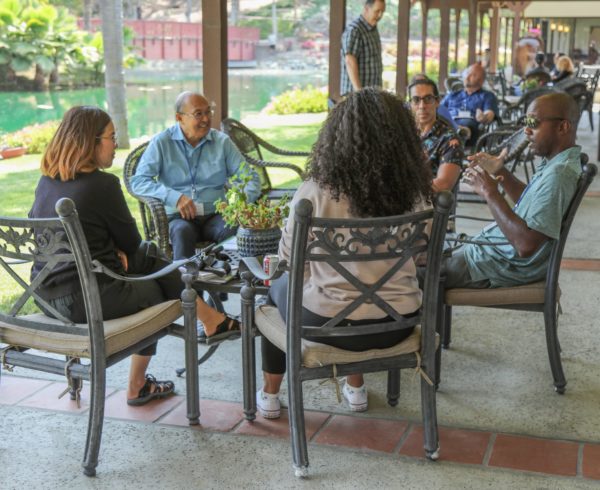Shame is a horrible feeling. Especially when you’re alone in it.
That’s why when we hear someone else’s story of shame and how they worked through it, we can often identify with them. And that’s comforting because we realize we are not alone.
There are many reasons people feel shame. But it is especially difficult when shame is imposed on us by others. The feelings of shame and rejection are further compounded when the very thing others assume we caused is entirely out of our hands.
False assumptions then create an environment that traps people in the powerful grips of shame.
This was the case in the story of two women in the first century. They were cousins. And their stories can teach us a lot about how God meets us in our shame.
The older cousin
Her name was Elizabeth. Her and her husband Zechariah were devout Jews dedicated to the God of their forefathers.
Zechariah was a religious leader. A priest. Every year he would go down to Jerusalem to perform his Temple duties for a period of time.
Elizabeth’s occupation, as most Jewish women in first century Palestine, was likely centered within her home life as wife and mother. However, Elizabeth had not yet experienced the joy of motherhood. She was barren.
As devoted as she was to God and her husband, she was unable to have children. And in her culture, if a Jewish woman could not have children, it was a very shameful thing in your family and religious community.
To have children meant you had God’s blessing. To be barren, meant the lack of it. That kind of environment has the potential of putting a lot of undue pressure on a woman. Add to that pressure the very natural inclination and deep capacity of any woman to want to raise and nurture a child.
The scandalous woman
Around the same time in a nearby village, was another woman, a much younger woman likely between the ages of 12-16. Her name was Mary, Elizabeth’s cousin.
Unlike Elizabeth, Mary had her entire life in front of her.
But like her relative, she lived in the honor and shame culture of first century Israel. So when a Jewish person broke the moral expectations of the day, they were shamed by their community.
One of those expectations was to remain sexually abstinent until the wedding night. This expectation was placed on both young women and men, but the shame involved in breaking that expectation was often much more severe for women.
So when Mary’s fiance Joseph hears that she is pregnant, and he knows he isn’t the father, he is forced to consider doing what any engaged Jewish man would be expected to do in their culture. End the engagement. To do this was considered getting a divorce, even though they hadn’t been officially married yet, due the legal and monetary nature of 1st century engagements.
This decision would inevitably invite public shame from both her immediate family and nearby relatives, not to mention the local Jewish synagogue community. Mary’s future prospects would be extremely limited, and unless her family was wealthy she would likely become a financial burden on them.
When God shows up
It was in this setting at this time in history, in the lives of these two women that something profound happened.
These two women would have certainly experienced great shame in their lives, if not perpetually at least periodically due to the cultural religious climate. Like any woman in their position, they would have welcomed a good dose of encouragement and comfort.
Their stories are weighty, and yes while it is true that in time, they did experience unexpected miracles, we would do them a disservice by moving too quickly to that part of their story without letting the reality of their suffering kick in.
How many of you have experienced shame publicly or in isolation?
Maybe you can identify with Elizabeth and Mary’s situation–having your family, friends or faith community shun you and make you feel ashamed for something.
Maybe the shaming happened somewhere else, like at work or on the job.
Maybe it left you feeling humiliated and exposed.
How could they? Why? Why God? When are you going to answer my prayers? When will I get a break? Help me God. I am losing hope. Please, don’t let this happen to me.
It’s in this space, when we are most vulnerable, when we are out of hope, God meets us.
And comforts us. And sees us through. If we could just hold on. How long? As long as it takes.
Let God surprise you and do what only God can do. It may not be what you expected. It may not be the answer you had hoped for initially. But maybe just maybe, it will be better.
If we mean anything at Christmas when we talk of Emmanuel, let us not forget that the God who met Elizabeth and Mary in a desperate time of need, meets us today in the most vulnerable places of our being. This is where the phrase “with God all things are possible” means the most.






